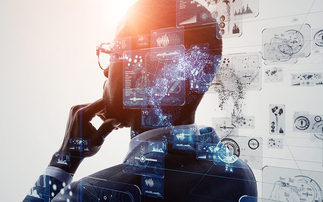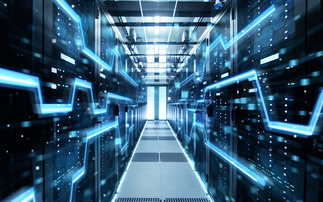OPINION: It's a given that we live in a data economy: data is both the new currency and the new gold - the asset that backs many a market decision or transaction. Even money itself is likely to become completely digitised in the future, meaning that people's spending habits will be even more closely tracked and their behaviours monitored. Money is simply an agreed token of trust and value, and that value may well be couched in our personal data this decade.
But should organisations themselves be completed guided by data, rather than by strong leadership, a distinct vision, a good idea, or simply a hunch?
Critical thinking
Basing every action on the same types of data could mean increased homogeneity, or a lack of imagination, critical thinking, and originality. Can organisations, entrepreneurs, risk takers, and start ups be outliers and market changers in a world where the data may reinforce the status quo?
After all, perhaps the first thing that any organisation automates is its assumptions about the world. But what if those assumptions are wrong?
Take the technology sector itself. In the mid-1990s, all the data said that Microsoft owned the desktop with a 95 percent market share, that Apple had become a marginal player loved only by designers, and that Linux was doing little more than making up the numbers.
Nowhere in that data was a clear signal that Apple and Google would transform the computing model with iOS, Android, and mobility, leaving Microsoft a marginal player in smartphones and tablets. Nor was there much convincing evidence that Linux would be critical to data centre back ends, that open source computing might become increasingly popular, or that Apple might become a successful retailer.
Enterprise clouds
Of course, Microsoft has become a major player in the enterprise cloud, AI, and the data centre, but there was little sign of that future either when the business world revolved around monolithic grey boxes on millions of office desks.
The point is that any analysts in the mid- to late-1990s predicting such sea changes in how we use and interact with technology would probably have been laughed at - certainly by anyone scanning spreadsheets and databases for guidance on the future.
We also tend to imagine that the future is linear, rather than messy and cyclical. We like to believe that new things simply emerge and replace the old, like the shiny metropolises in science fiction movies, where nothing from previous eras seems to exist anymore.
Take music, photography, and publishing, for example: where in market data was any signal that vinyl, film photography, or high-end print would experience booms, and in the case of music outsell physical digital formats? Such an idea doubtless seemed counter-intuitive or preposterous to linear thinkers.
But students of history and human nature were perhaps less surprised by these types of trends: when technologies are replaced, they often move upmarket into higher value or exclusive niches as people seek radical alternatives to the mass market.
The key is to not be so focused on granular data that you can't see the bigger picture, or use your intuition, or think about how human beings behave in the real world. We are not objects in a database. One risk in turning everything in the business world into analytics, numbers, clicks, spreadsheets, and forecasts is that we lose our ability to think critically.
Hidden truths
Of course, artificial intelligence and analytics may soon reveal to us the hidden truths in many data sets, by identifying new or marginal patterns of behaviour that are moving into the mainstream - assuming that our data is not biased by our existing assumptions.
That said, large numbers of people are obsessed with dystopian visions and many see technologies such as these as a threat, rather than as a constantly evolving set of tools to help human beings work and live better.
For those people, the threat is machines becoming more human; but perhaps a more troubling one is humans becoming too machine-like in a data focused world, where we are box-tickers in the service of algorithms.
In 2016, Dr Anders Sandberg from the Future of Humanity Institute at Oxford University revealed the crux of the problem: if you can describe your job, he said - in other words, if you can break it down into replicable processes and data - then it can and will be automated.
But there are risks in not being data focused enough, of course. Often people put too much faith in the modern myth of the charismatic CEO - the Steve Jobs-like figure who seemingly changes the world through self-belief. One risk is that the organisation becomes entirely dependent on that personal brand, even if the data is screaming that the business is in trouble.
Balancing vision with data is the way ahead.
This article is from Computing's Cloud ERP Spotlight, hosted in association with Workday.

















